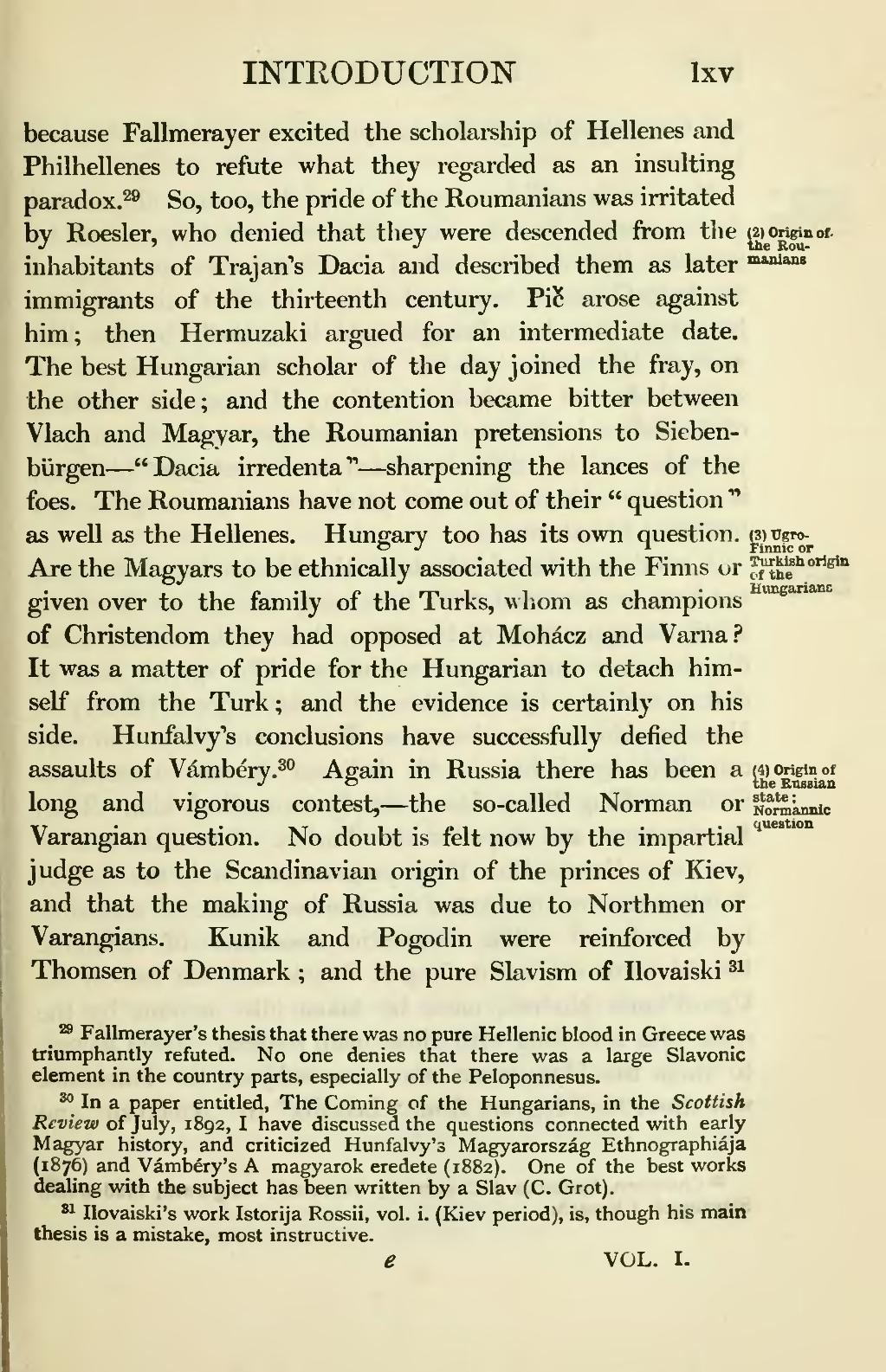because Fallmerayer excited the scholarship of Hellenes and Philhellenes to refute what they regarded as an insulting paradox.[1] So, too, the pride of the Roumanians was irritated (2) Origin of the Roumanians by Roesler, who denied that they were descended from the inhabitants of Trajan's Dacia and described them as later immigrants of the thirteenth century. Pič arose against him; then Hermuzaki argued for an intermediate date. The best Hungarian scholar of the day joined the fray, on the other side; and the contention became bitter between Vlach and Magyar, the Roumanian pretensions to Siebenbürgen—"Dacia irredenta"—sharpening the lances of the foes. The Roumanians have not come out of their "question" (3) Ugro-Finnic or Turkish origin of the Hungarians as well as the Hellenes. Hungary too has its own question. Are the Magyars to be ethnically associated with the Finns or given over to the family of the Turks, whom as champions of Christendom they had opposed at Mohácz and Varna? It was a matter of pride for the Hungarian to detach himself from the Turk; and the evidence is certainly on his side. Hunfalvy's conclusions have successfully defied the (4) Origin of the Russian state: Normannic question assaults of Vámbéry.[2] Again in Russia there has been a long and vigorous contest,—the so-called Norman or Varangian question. No doubt is felt now by the impartial judge as to the Scandinavian origin of the princes of Kiev, and that the making of Russia was due to Northmen or Varangians. Kunik and Pogodin were reinforced by Thomsen of Denmark; and the pure Slavism of Ilovaiski[3]
- ↑ Fallmerayer's thesis that there was no pure Hellenic blood in Greece was triumphantly refuted. No one denies that there was a large Slavonic element in the country parts, especially of the Peloponnesus.
- ↑ In a paper entitled, The Coming of the Hungarians, in the Scottish Review of July, 1892, I have discussed the questions connected with early Magyar history, and criticized Hunfalvy's Magyarország Ethnographiája (1876) and Vámbéry's A magyarok eredete (1882). One of the best works dealing with the subject has been written by a Slav (C. Grot).
- ↑ Ilovaiski's work Istorija Rossii, vol. i. (Kiev period), is, though his main thesis is a mistake, most instructive.
